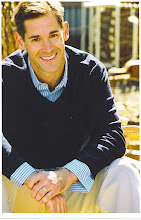“There is a sense in this country that in my belief is anti-intellectual. There is almost a case to be made against smart people and that has penetrated I think from the top leadership in this country right through the ‘hood’ where people look down on folk who are academically prepared gifted and we’ve gotta change this culture,” he said. “America is fascinated by whether you can drink a beer. That’s not, that should not be the qualification for a president. A president ought to be able to lead the nation in a direction where young people aspire for the kind of genius that’s around this table.”
Geoffrey Canada, the president and CEO of Harlem Children's Zone at Carnegie Mellon University, Competitiveness Summit
Thursday, June 26, 2008
2nd Amendment
For most of the last century, the interpretation of the Second Amendment has been that the right to bear arms is a collective right, such as with military service; Thursday's ruling says gun ownership is an individual right.
In Thursday's ruling, Justice Antonin Scalia, writing for four colleagues, said the Constitution does not permit
"the absolute prohibition of handguns held and used for self-defense in the home." He added, however, that nothing in Thursday's ruling should "cast doubt on long-standing prohibitions on the possession of firearms by felons or the mentally ill, or laws forbidding the carrying of firearms in sensitive places such as schools and government buildings."
In dissent, Justice John Paul Stevens wrote that the majority of justices
"would have us believe that over 200 years ago, the Framers made a choice to limit the tools available to elected officials wishing to regulate civilian uses of weapons." Stevens said such evidence "is nowhere to be found."
Subscribe to:
Comments (Atom)
